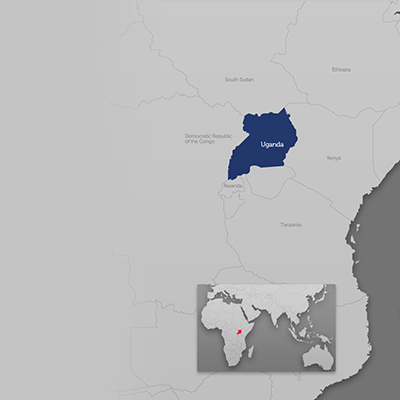Uganda: Vocational Training and Tailoring Shop Program
87 New Students Enrolled: Q1 2017
June 01, 2017
Alphonse Mwanamwolho and Naku Charles Lwanga
Summary of Activities
We continue to provide financial support and guidance for the four departments at RMF’s Panyadoli Vocational Training Institute (PVTI). During this reporting period:
- 87 new students were admitted for this intake.
- The process of admitting new students was initiated through advertising the opportunity in the community. This led many prospective students to apply to PVTI.
- Many students applied, but only 87 were accepted, as PVTI’s financial support is not enough to support all applicants.
- All students went through PVTI’s interview process, and the selection criteria were based upon passing the interview. All partners implementing activities in the settlement were invited, but only the OPM, UNHCR, Kiryandongo District Local Government, Community Leaders RWCIII, RMF’s coordinator, and PVTI instructors attended the interviews.
- 254 applicants were interviewed, and only 87 managed to pass interviews.
- All materials were provided for the first intake, and students continued with daily programs.

Results &
ACCOMPLISHMENTS

87 New Students
Beginning a New Semester
In this new 2017 semester, 87 new students were accepted at the Panyadoli Vocational Training Institute (PVTI):
- 31 for Tailoring and Garment Cutting (TGC)
- 26 for Hairdressing and Beauty Therapy (HBT)
- 15 Carpentry and Joinery (CJ)
- 15 for Bricklaying and Concrete Practice (BCP)

New Classroom
Hairdressing and Beauty Therapy
The newly constructed Hairdressing and Beauty Therapy classroom is operational and being used, and electricity has been installed. Because the classroom now has electricity, students can take their practical exams without having to share with the Tailoring and Garment Cutting class.

Training Materials Arrive
Meeting Activity Goals
Training activities have run smoothly, since we received sufficient training materials on time. Having all necessary training materials enabled PVTI instructors to plan for day to day activities and meet our set goals on time. Students were able to complete most of the modules, which significantly enhances their ability to be fully equipped with the skills needed after graduation from Panyadoli Vocational Training Institute (PVTI).

Background
& Objectives
Background
In April 2011, RMF initiated the Panyadoli Vocational Training Institute (PVTI) at the Kiryandongo Refugee Settlement after being presented by the refugee community with issues surrounding the lack of skills and vocational training for students graduating from the settlement high school.
After researching which skills would provide the quickest earning opportunities and the most efficient economic investment requirements for RMF, we narrowed the programs down to:
- Hairdressing and Beauty Therapy
- Bricklaying and Concrete Practice
- Carpentry and Joinery
- Tailoring and Garment Cutting
Objectives
- To train the refugees with relevant vocational training skills
- To prepare the refugees for the work world with entrepreneurial skills for both employment and self-employment
- To prepare refugees with basic skills that they shall use for nation building when returning to their home country
- To foster a cycle of improved economic stability and opportunity in the region

More
Photos
Click to enlarge



More Reports on: Vocational Training and Tailoring Shop Program Archive
Country Page: Uganda
Initiative Page: Vocational Training and Tailoring Shop Program











